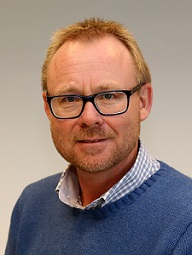HoD News - 14 May 2018

Dear colleagues,
Relocation to the University City
As you know, it has been decided that the activities of Aarhus BSS, including Department of Economics and Business Economics, will be relocated from Fuglesangs Allé to the new so-called University City (the former municipal hospital). The move is planned to take place in 2022-2024. This provides a unique opportunity to gather the majority of the Aarhus BSS faculty activities in Aarhus in the northeastern corner of the University Park. Together with the other planned relocations within the university, it becomes possible to create a true university campus environment to the benefit of students and faculty members. The University City will be connected with the University Park via two tunnels in connection with the tram-stops at Nørrebrogade. Also, the University City is expected to hold excellent facilities for students and staff including study, dining and sports facilities. The plans are still at a very preliminary stage. In the coming year, we will be invited to contribute with our ideas, wishes, and thoughts for the University City, our department, and the teaching and other facilities for our students. I look forward to this process, which will have broad involvement of students and faculty members and staff.
2022-2024 is several years ahead of us, and the move to the University City will not affect the existing plans for the scheduled move this autumn. Also, my plans announced earlier regarding reconstructions at Fuglesangs Allé will be unaffected by the move in the somewhat more distant future.
For more information, see http://www.au.dk/en/about/campus-20/
Danish language at the department
Department of Economics and Business Economics is probably the most international department at Aarhus University measured in terms of the share of faculty members who have a background from a foreign university. More than 40% of our department members are international. This is great and adds to the diversity of our department. However, it also implies certain challenges. Although most of our teaching is in English, we do have courses that are taught in Danish. It is also a fact that most administrative tasks are in Danish although some exceptions exist. I wish we had a more even distribution of certain teaching and administrative tasks to be filled across the department. We often face problems in terms of covering certain teaching needs (in Danish) despite the size of the department.
The daily spoken language at the department will to a large extent continue to be English. But learning Danish is an important element of integrating well in the Danish society, including taking part in daily activities at the Department, and I would like to put more focus on this. In future employment contracts for tenured positions (at the associate and full professor level), it will be stressed that learning Danish will be expected as part of the contract. To facilitate this, the department will pay international employees for attending and completing a full Danish language course. Also, newly employed colleagues in tenured positions will be offered a zero vipomatic norm for their first semester of employment, given that a formalized language course programme is initiated and completed within the first two years.
Niels Haldrup